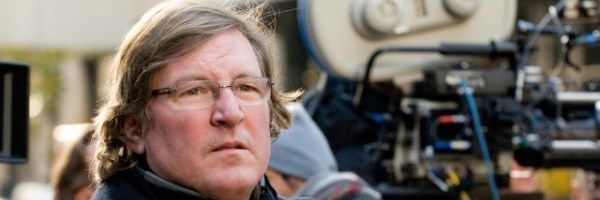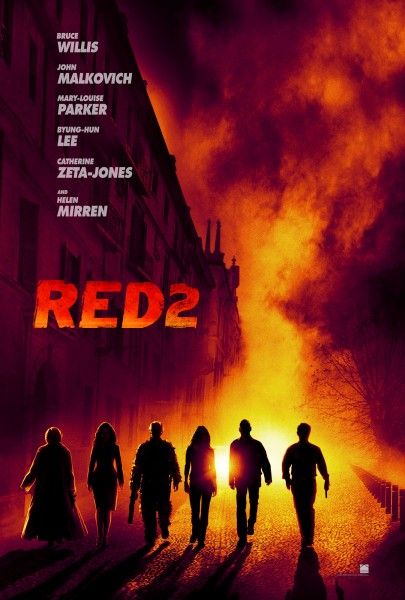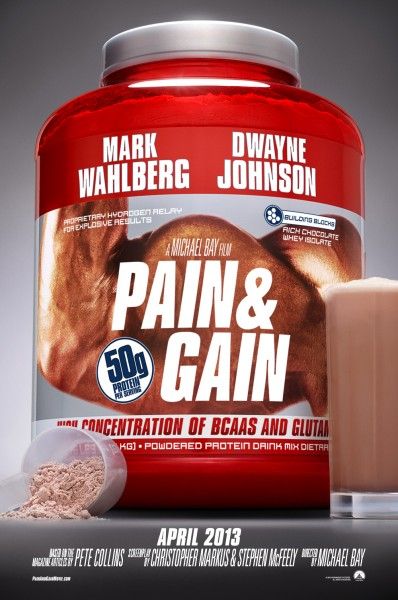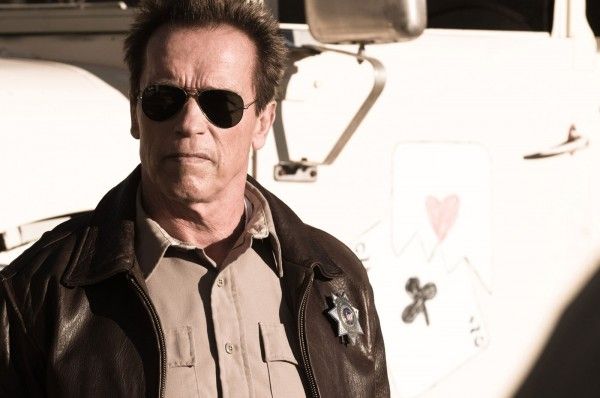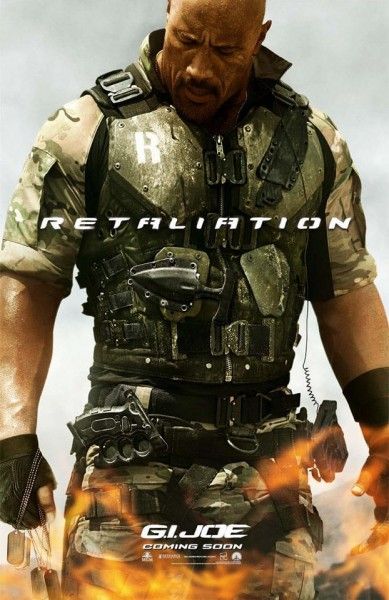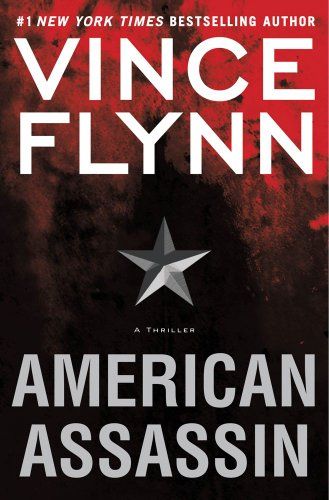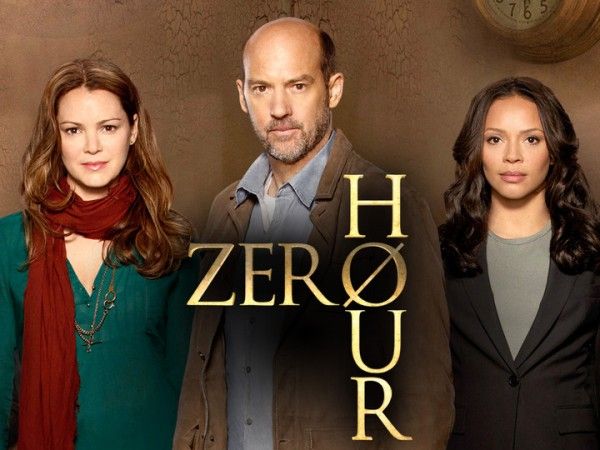Lorenzo di Bonaventura is one of the more prolific producers in Hollywood. In addition to producing the Transformers franchise, Red, G.I. Joe: The Rise of Cobra, Salt, and many others, di Bonaventura has a number of exciting films coming up like The Last Stand, Side Effects, Red 2, Jack Ryan, and American Assassin.
Last week I was in London and while there landed an exclusive interview with di Bonaventura. We talked about the Red sequel, why they hired director Dean Parisot, Transformers 4, The Last Stand, the Salt sequel, his thoughts on Warner Bros. doing a 3D re-release of The Matrix, the G.I. Joe sequel and the 3D conversion, American Assassin, his upcoming ABC show Zero Hour starring Anthony Edwards, and a lot more. Hit the jump for what he had to say.
We’re in London right now, you’re filming Red 2. I’m definitely curious why London for Red 2?
LORENZO DI BONAVENTURA: We actually have that rare pleasure of shooting in a city where the movie is designed- the actual creative reasoning is why we’re here. So it literally takes place in London as opposed to trying to recreate something else. You know, we’re trying to find a bigger experience for the audience. Which I think in Red is- it’s interesting because we have such a big cast that part of doing that is who else is going to be in the movie, and part of it also is, you know, the first movie is a bit of a travelogue. So we thought, you know, that’s sort of a part of the heritage of the series now, in our minds anyhow. So we did travel around the United States, let’s go elsewhere. so in Red 2 we go to Paris, we go to Moscow, we go to London. We do some United States, Washington DC and a few other places as well, but it’s really sort of an international road trip movie, if you would.
I definitely want to ask about the plot because not a lot of people know about the movie yet, so what is the story of the sequel? And does it take place right after the first film or is there some time that’s gone on?
DI BONAVENTURA: I’d say it’s probably, I don’t think we’ve ever really exactly, but it’s probably about six months has transpired in between. Something like that. Six, nine months has transpired between the first film and the second film. And the logic of it was, you know, the first movie we looked at as a- we looked at Frank, Bruce Willis’s character, the story of a guy who is desperately trying to fit in to a world of retirement that he just doesn’t really belong in, right? And it just doesn’t come naturally to him; he doesn’t really know how to do it. And of course then of the Mary-Louise Parker character comes into his life. So in this movie we thought what would be really fun is to see a guy who doesn’t really know how to have a relationship, let’s see what would happen. One of the really fun things about watching this is watching frank struggle with how do you manage this thing? Now that you have somebody in your life what the hell do you do? So that’s sort of the emotional thing that we get to play with is what happens in this relationship between these two people. When one of the most- I think one of the fun things about what frank is, his natural inclination is to immediately protect Sarah, you know Mary-Louise’s character, and she wants to have an adventure, those things are incompatible notions. You know in her mind “I want to go out on missions. ” and as we set up her character she’s somebody who wants to see the big world and do exciting things and Frank suddenly has somebody who makes him very vulnerable and who he’s very worried is going to get hurt. So he’s trying to protect her, which is frustrating her, and she’s trying to make him see that no, no, no that’s not, that’s not what it was. So what’s fun is you watch this relationship over the course of the movie struggle with a fundamental disagreement, which is always fun in relationships, you know?
At the same time there’s a larger plot a foot, which without spoiling too much of it, it’s something has been leaked on WikiLeaks and it has pulled frank and Marvin in to it, and they’ve been identified with this thing and they don’t know what the hell it is, so they got to figure out what is this thing called Nightshade, it’s called Nightshade, and why are we linked? and whatever it is we got a figure out what it is because they’re going to keep coming after us and everybody we love if we can’t figure out what it is; because everybody’s trying to find this thing Nightshade. And so they believe these guys know her and they don’t even know what the hell they are talking about. So they’ve got to puzzle out what it is. And that journey takes them from the United States to Paris, where they learn some very important information, to England, where they learn some more important information, to Moscow, where they learn the most important piece of it, and then back to England. And so they’re following the trail of this thing and at the same time along the way they’re having a lot of fun hijinks and a lot of fun action beats. You know we’ve added Anthony Hopkins which is fantastic, Catherine Zeta-Jones which is fantastic, and Byung-hun Lee. So- and David Thewlis and I always forget somebody so I better think hard about this. But there’s so many great actors it’s hard to remember everybody, it’s funny because you go, “and so and so”, and “by the way…”
I’m curious because obviously once you’ve done the first film you can show that to people and say, “Hey, this is what we did. ” Which leads me to are you guys going for a similar tone? Because it was a really fun tone that you had.
DI BONAVENTURA: I think, I think we all loved the tone of it so- but, I don’t think you can replicate tone. You can come close, but we also have a different director so he’s going to have a slightly different version of this thing. But, what we describe as tone for that movie is all the characters are playing it very straight while outrageous, fun shit is going on. So we are maintaining that tone. Dean [Parisot] has a different sense of humor than Robert [Schwentke] so there’s certain kinds of things that are a different funny, you know, different kinds of actions are happening. So you know it will be a different movie and it will be a new experience for everybody, but also our hope that we retain the thing that everybody digs about it because that’s what we dug about it too.
I’m a big fan of Dean, I love Galaxy Quest.
DI BONAVENTURA: Yeah, me too.
Love. I cannot say enough how much I love that film.
DI BONAVENTURA: And in some ways when you think about the tone of that film, it’s very similar to this, because those characters are in an outrageous plot, but they take it utterly seriously.
I would imagine that there was a lot of interest from a lot of people, or did you specifically go after Dean, I’m just curious how he came to be the one that ended up directing the project.
DI BONAVENTURA: Galaxy Quest.
Oh, is that right?
DI BONAVENTURA: No question. I mean we looked at that movie- when we were trying to figure out- it was interesting, when we were talking to directors about the first one, okay? Robert came in and articulated the tone we were going for even though we probably could have articulated it as well, but we kind of instinctually knew what we were trying to get. But, Robert immediately articulated it. Galaxy Quest is a very similar tone so, you know, we knew. And also if you look at some of the stuff dean does, like Dean does Justified, right?
Sure.
DI BONAVENTURA: I love Justified-
Me too.
DI BONAVENTURA: -which has outrageous stuff going on totally straight. I mean it’s ridiculous, it’s insane, right? But those characters hood that line. So he was- and I worked with him on Home Fries, so I’ve known him for a long time, so he become the leading candidate very quickly, we didn’t know that he would want to do it. But it turned out one of the best things we’ve had going for us on this movie is people really genuinely seem to love the first one. So he was like, “I was a huge fan of that. I love the tone of that. And that would be a fun thing to be a part of. ” And that was true with Anthony Hopkins and Catherine, you know, it’s been easy to get actors because they liked what they saw before and then they read the script. And the Hoebers, you know, you never know if- I don’t know if it’s a better script, but it’s really good. And you know, you always hope to improve on things and maybe we have maybe we haven’t, we’ll see. But we know we’ve got a really great script, and the Hoebers really know these characters and you know I think that people sensed that as they read it. You know, David Thewlis, who’s a brilliant actor, you know? There’s a really fun, small, flashy part, and honestly you know he’s a bigger actor really in a way than the part you know?
Sure
DI BONAVENTURA: But it’s also a really fun turn. But he was also like, “I just want to be a part of something-this looks really fun, and I love that first movie. ” So we’ve gotten a lot of people like that, whether its crew members or actual cast.
When did you start shooting and when do you wrap?
DI BONAVENTURA: We started shooting, I want to say like September 12th, September 10th somewhere around there, early almost to the middle of September. And then we wrap December 20th- 21st.
That’s a pretty long shoot.
DI BONAVENTURA: It’s a long shoot. Well also when you think about the travel time in between we had to actually like take a week between Montréal and Paris so we could get ready for Paris, so it’s been interesting. And then we had to go to London, so we had to have three or four days off. It’s still a long shoot, it’s a big movie. It’s a bigger movie than the first movie in scale.
That’s what I was also curious about, the first movie was a success and Summit was hoping to start something with it. Was it tough to get the green light on the sequel or was it something that someone was waiting on you to finish the script.
DI BONAVENTURA: Well everybody was definitely anxious to hopefully make the second movie, but what happened was the Hoebers handed in the first draft was fantastic. I mean that’s not a hard- if you wanted to make a movie that made it very easy call to say yes. So that’s really what happened it wasn’t really much of a struggle because they really wrote a great first drat you know and, you know, it was a greenlightable draft, the first one.
As you know I’m a huge Michael bay fan, have you seen a rough cut of Pain and Gain?
DI BONAVENTURA: I have not.
I heard it’s interesting.
DI BONAVENTURA: I loved- I thought the script was wild, and interesting, and funny, and think one of the things people don’t realize about Michael is how funny he is and how much of the humor of Bad Boys of Transformers is really coming- and I read these pages and then you see the scene and you see all this humor that Michael adds. I bet you its fall down funny.
I’m 100% sure. Obviously Transformers 4 is a really big deal and I’m definitely curious what can you tell fans about the next one, if anything?
DI BONAVENTURA: Absolutely nothing.
[Laughs] Ok I will leave that one alone then, and move on to- but it is going to be an all new cast? That’s been announced.
DI BONAVENTURA: It has been announced. You know, I think that were trying hard to surprise the audience again, I know that Michael loves the element of surprising the audience so I think that you know all of us are going to not really talk about the movie.
I want to ask you about The Last Stand, that’s getting ready to come out in January.
DI BONAVENTURA: Yeah, Martin Luther King weekend.
So how did that turn out? Tell people what they should be excited for.
DI BONAVENTURA: Well I think the first thing that you won’t expect is how funny it is. It is funny and you listen to the audience just roar with pleasure at it. It’s a combination of Je-woon [Kim], our director, you know, has a very wry and kind of also broad sense of humor in him. And I think adding Luis Guzman, adding Johnny Knoxville, who does a phenomenal turn. I think people are going to be very, very impressed, he created a character that I think a lot of people- you can look at jackass and say, “Oh what’s that?” right? I enjoy it, I see that he –like the old man character, he creates characters. In this movie he creates a character that really you just love the guy; you just want him to survive the mayhem of this movie. So there’s some really strong action because Ji-woon knows how to do that as well, but it’s a very unusual movie in that it’s a throwback on a certain level to- I’d almost go early 60s kind of male-driven action movie. Very centered around the character, it takes its time developing the characters so you really get interested with everybody and so it’s a really great combination of comedy and hard action, and they coexist.
Is there any sort of update on a sequel to Salt?
DI BONAVENTURA: Were meeting writers, sadly we don’t have a writer hired yet, in order to have a script yet.
Obviously The Matrix, I love that film, do you think that could ever be a 3D re-release?
DI BONAVENTURA: I’d love it to be a 3D release, I mean; I’d love to see it again. It’s a movie I’m proud of my part in it. But just as a film fan I’d love to see what that wall of code looks like in 3D, watch the bullets fly, there’s so many things in that; watching him come down the hallway in that incredible shoot out. As you start thinking about it there’s so many scenes where you go like one after the other, I want to see that one and I want to see that one. I don’t know if they’re planning it, but if they aren’t I hope they do.
I just interviewed the Wachowskis on the phone for thirty minutes, I ran out of time, but that was my next question. But I do want to ask you, speaking of 3D, GI Joe, early next year, did you guys reshoot stuff? Did you just do a Titanic like post-conversion?
DI BONAVENTURA: We did like Titanic, yeah. We learned a lot about 3D—I personally learned a lot about 3D in Transformers. The conversion part of the 3D process is night and day, you know, every three, four months it’s better than it was before. It’s amazing how fast that thing has changes. And originally we didn’t really have the time or the resources to try to figure out how to shoot it in 3D in the time frame that we were originally talking about, you know, starting in August and releasing in…what was our original release date?
June, July?
DI BONAVENTURA: June, yeah it was late June. So this delay has allowed us to go at it now. And Jon [Chu] has some sequences that are really, there’s a phenomenal- for GI Joe fans it’s going to be one of the really great scenes for them, because there’s a fight between Snake Eyes and Storm Shadow in a hallway that is so perfect for 3D I can’t tell you. It’s going to be like one of the coolest fights ever in 3D, because there’s so much about it that’s dynamic. That’s going to be really fun. And you know people have seen bits and pieces of the Himalayan sort of rock climbing thing, that’s- it’s almost 3D without having turned into 3D, so I can’t wait to see that. That one’s going to be like what the hell?
How long is the movie? Do you know or remember?
DI BONAVENTURA: It’s been a long time since I’ve really thought about it.
I’m just curious if it was like a ninety minute movie or a two hour movie?
DI BONAVENTURA: No, no, it’s neither. I want to say its 105 minutes, 104 maybe, and it’s somewhere in there, it’s right around the middle.
I remember I was invited to the junket in Dallas, and for me it was so last minute, the 3d post conversion, for you were you sort of like, “Wait what? We’re going to do this? What?”
DI BONAVENTURA: It was definitely, when you’re planning yourself all towards one direction, you know, you definitely go, “Whoa, what the hell?” But the second- you know, look, here’s a sort of simple way for me to look at things. If the studio wants to spend money on making your movie better, let them.
Yes, exactly.
DI BONAVENTURA: I find it hilarious when people fight that, you know? I’m like, “Great, you want to spend a lot of money and try to make our movie a bigger success? Okay! That sounds good. ” And Jon got that too, you know? The first moment you’re sort of going, “Whoa! Uhhh, wait. Oh, ok, great, let’s do that. ”
The Titanic post-conversion is nothing short of jaw-dropping, and I’m curious because Cameron spent like a year, 18 million dollars, like just really went to town on it. I’m basically curious can fans really look forward to something really cool with this 3D conversion?
DI BONAVENTURA: Well look, everybody’s been burned by bad 3D conversion right? It’s not- you know, without having seen it, it’s hard for me to sit here and say, “Yes, it looks great!” You know? I haven’t seen it. We know we’re doing it with a really good house, we have enough time to get it done where were not racing to do it in a way that, you know, conversion really has a lot do with how much time you spend on it, and it has a lot to do with the experience of the house that you’re doing it with. I think we’re going to come out with a really good 3D product, I think people are going to be wowed by it. Paramount’s certainly spending the money and we’re certainly working hard on it.
Sure. You have a lot going on, I’m curious what is bubbling up for you in terms of maybe something you’ve read recently, because I’ve seen your name attached to like twenty different things.
DI BONAVENTURA: I know, it’s funny I’m not attached to nearly as many as I’m given credit for. What’s bubbling up for me?
Well I saw on the always accurate IMDB, American Assassin.
DI BONAVENTURA: Yes, well that’s going to go next fall and I love the Mitch Rapp series of books. You know, I always wanted to do Jack Reacher, so I’m really dying to see- I am, I’m really dying to see that movie; because, I’ve read every Jack Reacher book for sure. As I’ve read every Mitch Rapp book, Mitch Rapp is a great character and I think there’s a real…you know, we have the chance to make- he’s not Bourne he’s not Bond, he’s very unique unto himself but he exists in that sort of big space and you get to watch a guy become an American assassin. It’s really kind of fascinating and cool.
Have you announced directors or actors?
DI BONAVENTURA: No we haven’t announced anything.
Do you have someone who’s working on the script?
DI BONAVENTURA: We have a really good script that’s been greenlit. Jeffery Nachmanoff, who’s going to direct it, is doing a little bit of work, but we’re just trying to figure out who’s going to be the right Mitch Rapp and who’s the right Hurley. There’s two characters in it, the Hurley character is a great character that…he’s just, he is a full scale motherfucker, tough guy. I mean he’s a tough, tough dude. It’s an interesting thing watching these two guys who are tough in very different ways bounce off each other, not so sympathetically to one another and they have to get to the same goal.
How is it being based in London for a number of months in terms of running your company back in LA?
DI BONAVENTURA: It’s really disruptive, but the hardest part and everybody will tell you this who has business back in LA, is you work all day and then you get home, you get back to your hotel or apartment and then LA has woken up, and they don’t care that you worked all day in London. So you end up with this kind of crazy schedule, where you make calls until midnight or two in the morning, and then you get back up at the crack of dawn and you’re back on the set. So it’s actually really tough on people to come here. Because I don’t want the things that I’m really passionate about, both in television and in film, back in la to not move forward, you know? By the way, you can be in LA and they don’t move forward either, unfortunately. In general, you know, I’m having Salt calls from here, I’m work on trying to get a director there, and you just do your best. In some ways though, because I think you- I’m a pretty hard worker, but I think you even work more here, so you actually in some ways get more stuff done because, you know, for me I don’t have my family who I love and want to spend time with. They’re not here, so all that time that I normally would dedicate to them, suddenly its- you’re filling that with work.
Speaking of television, what’s going on with you and television right now?
DI BONAVENTURA: Well, we have this- I think a really cool show and I think ABC had some real guts to make this show, it’s called Zero Hour, it’s going to premiere next…not sure, we don’t have a time period yet, but we’re making thirteen shows right now. It is a conspiracy, it’s, it’s hard to pitch exactly, but we always pitched it originally as Frantic meets The Da Vinci Code. It’s about a man whose wife is kidnapped, and as he tries to figure out what the hell happened, you come into this giant conspiracy, the way the Da Vinci Code where you keep finding clues and figure out how does this piece fit in with that piece. It was actually a really fun pilot to shoot too, because it was shocking, I think, for people. We shot it in Montréal and the conspiracy starts in 1938 Nazi Germany, so we converted these four blocks of Montréal to 1938 Nazi Germany. And it was shocking actually to sit there… we found on the set, there’s a really interesting thing that happened on the set, which was as you saw these Nazi soldiers marching with burning torches and these huge Nazi flags. After a while we started getting really uncomfortable, and you started noticing you couldn’t stand looking at the monitor as much as you would normally look at the monitor. And it was just I think sort of just the evil nature of what those guys represent; it really began to affect people after a time. It wasn’t that we weren’t mindful of it going in to it, and you know, but they are…they’re easy to dislike. But, it was interesting just something as simple as that, as just staring at a monitor at the same thing over and over again, it’s not like you’re seeing, I mean it’s not like were filming atrocities or something.
Sure.
DI BONAVENTURA: It’s supposed to be entertaining for television, so I found it really interesting how psychologically it affected you. How much just looking at that symbolism and what it meant every time, “Look at that, whoa. ”
You said you did thirteen episodes?
DI BONAVENTURA: We are right now shooting episode eight or nine, right now. We went after a big star, Anthony Edwards, so we have a concept, and we have a fun journey, and we have a big star.
What I’m curious about is, I think personally, one of the issues with network TV is they do these twenty-two to twenty-four episodes and they water down great ideas by having to show it almost too much, because you're doing twenty-four episodes.
DI BONAVENTURA: Oh yeah, maybe.
And maybe I’m wrong about this but, I’m just looking at it from my point of view, I think thirteen episodes is a great number. When you get a greenlight from the studio, from ABC, how much are they going, “We need to know where season one is going, and if we do a season two. We need to know that you have an idea. ”
DI BONAVENTURA: Well, Paul Sharing is the show’s creator and he did Prison Break.
Sure.
DI BONAVENTURA: And there’s a certain analogy too, you know Prison Break was really, in a way designed to be a one-season show, which then turned into five or six seasons, I think. So, you know, I think what’s different here is Anthony Edwards’s job is one that should pull him naturally into new conspiracies. He runs a magazine called “Skeptic”. And so it is one that has always examined the werewolf in Mississippi is it real? Was 9/11 orchestrated by the Bush Administration? Which I, when people say that, I just think god, people really will believe anything. I wasn’t a fan of our former president, but the idea that they actually engineered that is so insane and preposterous. But people accept that.
I agree.
DI BONAVENTURA: So what’s fun about it is he exists in a world that is by nature meant to examine conspiracy, rumor, etcetera so you get pulled into one thing after another. So in a sense there’s an infinite number, but the advantage that we have is it’s always taking it to a new place, it’s always taking it to a new idea.
But, see you’re solving it right there, because my issue is when you try to lay out one story for too long, you kill it.
DI BONAVENTURA: I understand, yeah.
But the fact that you’re already going to say, were going to wrap up a storyline and start a new one, right there, already you’ve solved it.
DI BONAVENTURA: Yeah, no that’s right. And the continuing factor is his job and his search for the truth.
Sure.
DI BONAVENTURA: And the people who work with him, so there’ll be a lot of ongoing characters. It’s fun and it’s a new arena for me, television, you know? I watch a lot of television, always have. You know the themes and subjects that we can’t do in features. You know, just the appetite isn’t there for it. Creatively it’s exciting to be a part of that.
I was going to say, TV right now is in its best period, it’s in its golden area, it’s never been as good as it is right now. I’m just curious if you, looking through all this material, producing these movies, have you sort of put a stack together like, “you know, this might not work, but on TV, wait a minute. ”
DI BONAVENTURA: I wish. That would be great. No, I think they’re definitely two separate mediums, I don’t think it’s often that you’re going to find that kind of crossover. I think every one and a while you might get lucky and then have it happen, but no, in general it’s leading me into new directions.

